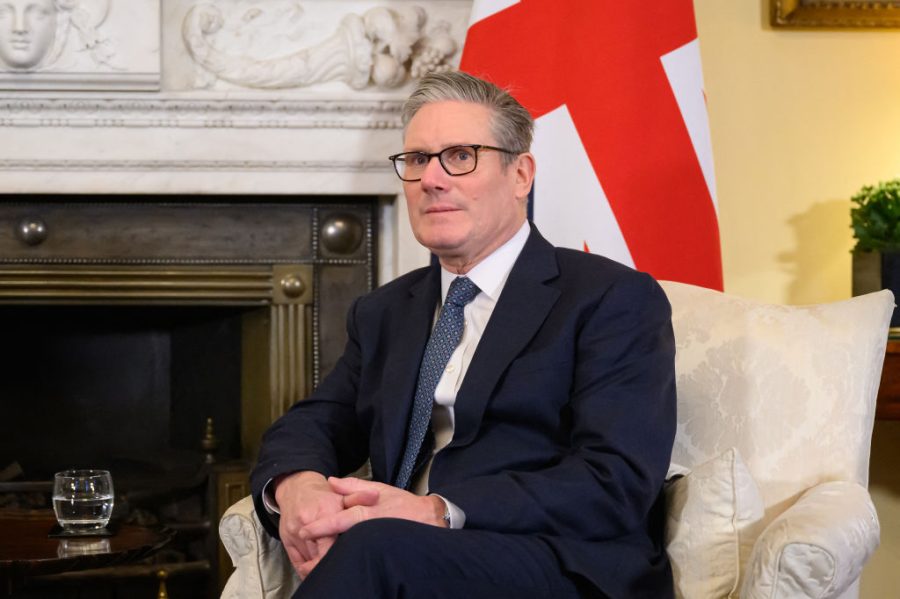When Sir Keir Starmer announced in October that he had reached an agreement with Mauritius to transfer sovereignty of the Chagos archipelago, he was met with fierce and sustained criticism. The deal essentially surrendered the British Indian Ocean Territory (BIOT), one of the 14 remaining overseas territories, to the government of Mauritius, while salvaging a 99-year lease on the island of Diego Garcia, home to a strategically vital joint UK/US military and naval base. But the Prime Minister has unexpectedly been handed an opportunity to row back on this agreement. The question is, will he take it?
When the agreement was announced, opponents argued that the Prime Minister had endangered both British and American national interests by ceding the islands to a nation which has close economic ties with China. Critics gravely wondered aloud what the implications might be for other overseas territories subject to territorial claims, like the Falkland Islands and Gibraltar.
Mauritius has never exercised sovereignty over the Chagos archipelago as an independent nation
At first, the government was at least able to point to support from the White House, as President Joe Biden welcomed the settlement. But the situation has since become more unpromising: sources close to Donald Trump’s advisers have indicated deep concern, calling the deal a ‘high-priority issue’ for ‘day one’. Not only this, but the new prime minister of Mauritius, Navinchandra Ramgoolam, has rejected the terms of the arrangement because they ‘would not produce the benefits the nation could expect’.
Even the most charitable observer could hardly rate this as a foreign policy success. Nevertheless, if the Prime Minister wants to end the year on a relatively high note, he should see that there is an opportunity here. He could make at least some kind of silk purse out of this sow’s ear if he now has the courage and wit simply to walk away from the deal.
Of course, there would be a degree of humiliation and obloquy to endure, though Starmer has so far demonstrated a startling indifference to that in his first six months in office. But there is counter-narrative: His Majesty’s government negotiated in good faith, continuing the work begun by the Conservatives as far back as 2021, but new administrations in Mauritius and the United States have now made the existing arrangement unsustainable, therefore regretfully etc etc. (The diplomatic service could no doubt refine the language.)
It is, after all, a terrible deal. Let us remember, firstly, that Mauritius has never exercised sovereignty over the BIOT as an independent nation. The Chagos archipelago formally came under British control in 1815 and was governed, for administrative convenience, from Mauritius, which had been taken from the French five years before. But the islands are more than 1,300 miles apart.
The archipelago was made a separate jurisdiction and established as an overseas territory in 1965, while Mauritius, then still a crown colony, only became independent three years later. Mauritius also received financial compensation equivalent to £75 million at today’s value. Yet somehow its government now believes the UK is not paying enough money to surrender the sovereignty of territory which never belonged to it except as a British possession.
This is being done, we are told, because the legal climate makes it inevitable that the UK’s sovereignty over the BIOT will be declared invalid. In 2019, the International Court of Justice issued an advisory opinion that the separation of Mauritius and the Chagos archipelago had been unlawful, and in 2021 the international tribunal on the law of the sea, ruling on a dispute between Mauritius and the Maldives, judged that the UK did not have sovereignty over the BIOT.
Neither of these decisions is legally binding. Yet the Foreign Secretary, David Lammy, told the House of Commons in October that the deal negotiated with Mauritius was vital:
A binding judgment against the UK seemed inevitable, and it was just a matter of time before our only choices would have been abandoning the base altogether or breaking international law.
It is a strange foreign policy indeed which not only anticipates but brings forward defeat while the battle is still underway – a Pyrrhic victory without the victory. There is also an unpleasant tang of deceit. The Labour party’s election manifesto was unambiguous about Britain’s international commitments:
Defending our security also means protecting the British overseas territories and crown dependencies, including the Falklands and Gibraltar. Labour will always defend their sovereignty and right to self-determination.
That has proven to be a lie. The BIOT’s sovereignty has been surrendered, not defended, and there has been no notion of self-determination nor consultation even with the exiled Chagossian communities. It is impossible to believe any assurances the government might make about other overseas territories.
In adversity can lie opportunity. The Prime Minister could walk away from this unholy and disreputable mess of his own creation. Donald Trump and Navinchandra Ramgoolam have unintentionally opened a door for him. If Starmer chooses to slam it shut again, it will suggest he is in thrall to politics masquerading as law, and sixth-form postcolonial agitprop, at the expense of Britain’s strategic interests.
The philosopher Jean-Paul Sartre said ‘nous sommes nos choix‘ – we are our choices. Who will Sir Keir Starmer be?








Comments